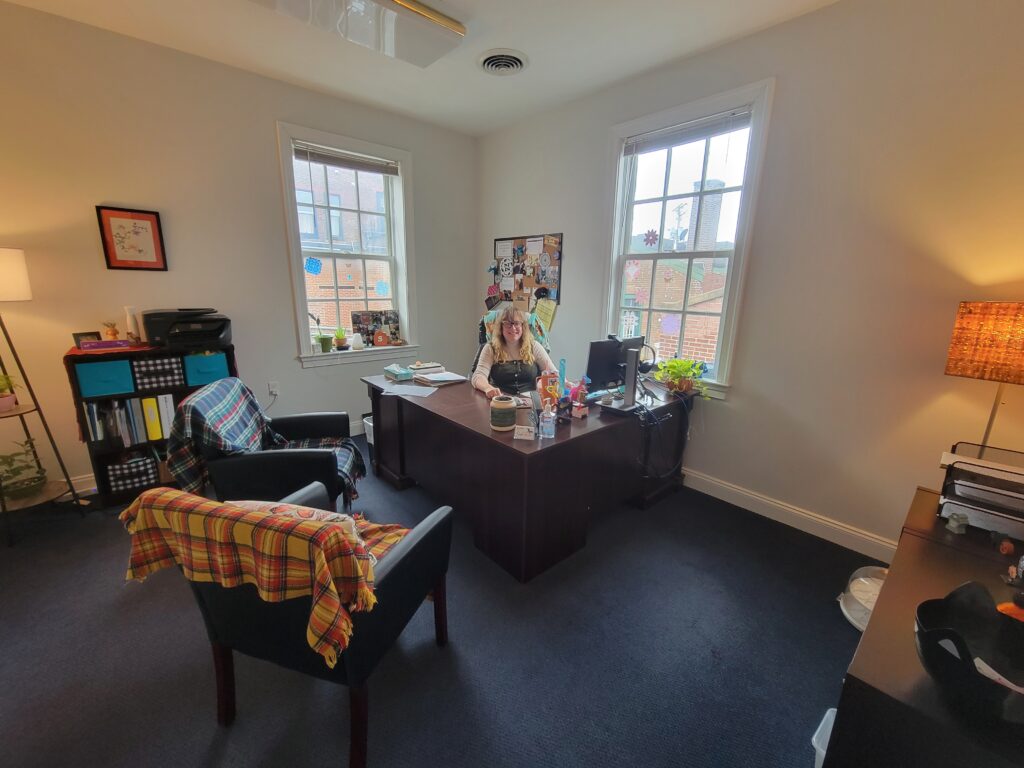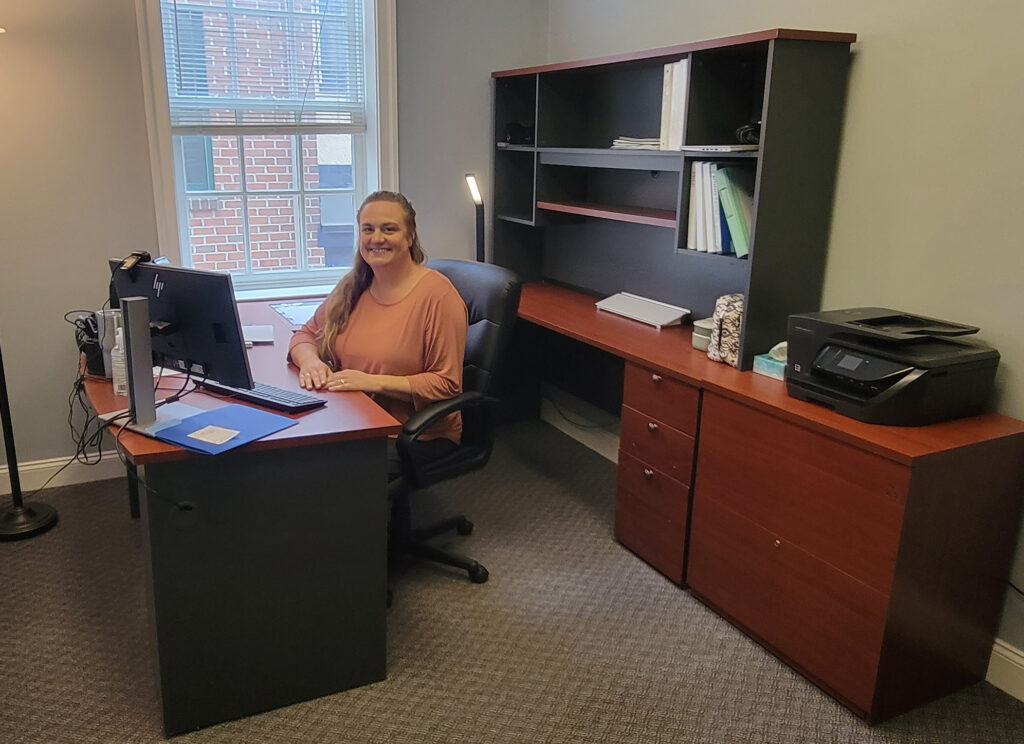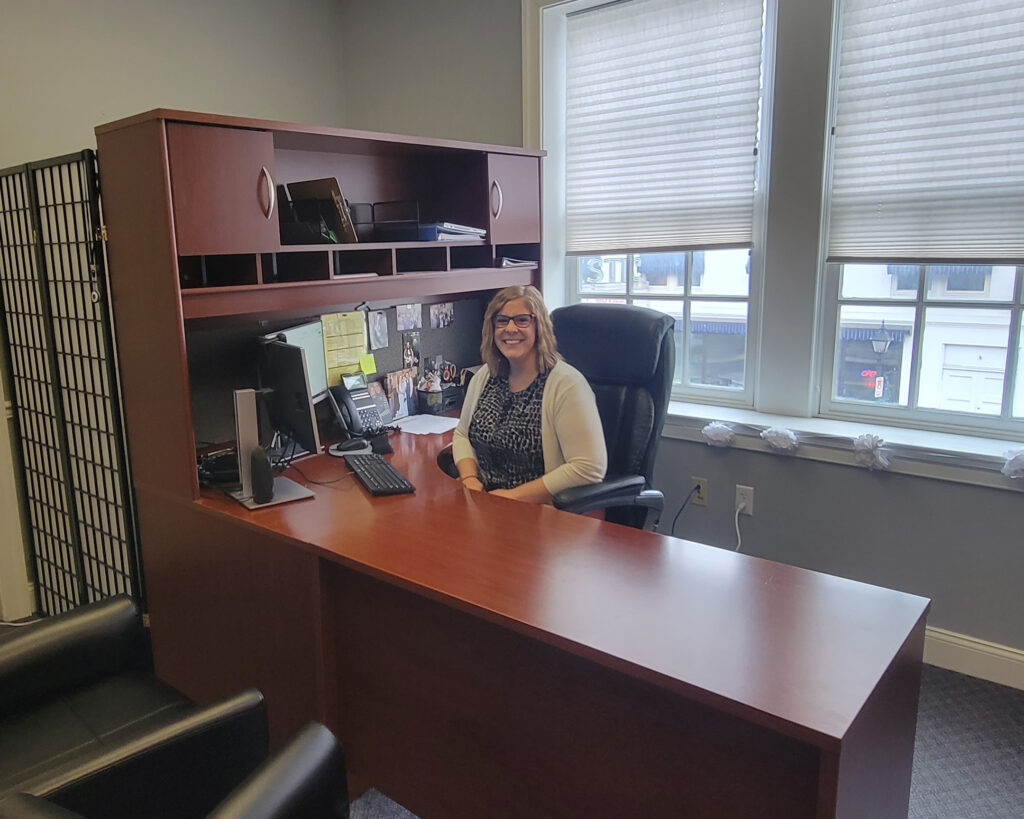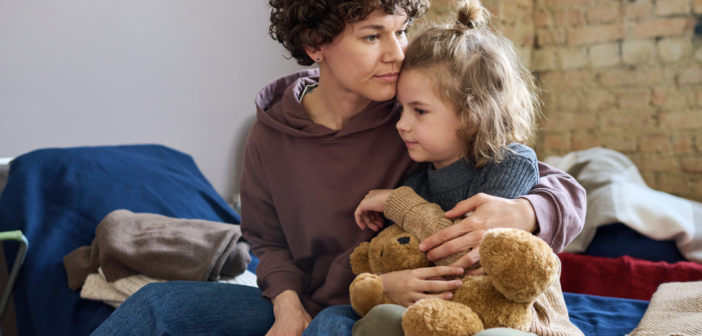Offering Survivors Hope & Healing
By Hannah Hottenstein
Home can be a haven—whether it’s a physical structure or a loving relationship. Most agree it should be a place where you can rest, feel safe, and be unconditionally loved.
But not everyone feels this way in their own home. Sometimes people find themselves in a home that becomes an abusive, far-from-safe space. This is a painful reality for more than 1,200 Pennsylvanians living in Adams County each year alone. Of all 104,127 Adams County residents, this means that one in 10 is being abused at home.
Anyone in our daily lives—even strangers we pass in the grocery store aisle—could be experiencing abuse or exploitation, and no one outside of that situation could know.
The Safe Home Program, a nonprofit organization run by the Hanover YWCA, is a beacon of hope for these lost survivors and a catalyst for freedom and healing.



The Complex Problem
According to the Pennsylvania Coalition Against Domestic Violence, 2,574 victims of domestic violence received services in one day in 2020 throughout the state. And 112 Pennsylvanians died last year—two of whom were living in Adams County— from severe domestic abuse.
Domestic violence can happen to anyone, regardless of gender, status, age, or ability. An intimate partner or close family member may use physical, sexual, emotional, financial, or technological means to control and harm the victim.
Human traffickers force people of any age, from children to adults, into commercial sex acts against their will through manipulation or coercion for sexual exploitation.
Safe Home’s Jamie Bonser, program director, and Sarah Harvey, assistant director, share how these issues affect our community. Bonser and Harvey have extensive legal and multidisciplinary backgrounds they draw on to lead staff and volunteers in assisting survivors to recovery and rehabilitation. Both are passionate and single-minded in raising awareness of domestic abuse and human trafficking and catalyzing healing for their victims.
In 2020, their team handled 1,160 hotline calls, 44 emergency shelter placements, and more than 150 protection-from-abuse orders. As of September 2022, they were actively serving 141 new and ongoing clients.
It can be difficult to get a clear picture of the problem because of the nature of these crimes. “It’s so under-reported,” Harvey says. “I feel like it’s hard to capture for sure.”
“On average, I would say we see just over 100 clients per month,” she explains, “so we see about 1,200 to 1,400 in a year. And trafficking is most certainly happening here. A lot of people ask that question like, ‘Really, here?’ and I’m like, ‘Yes, really.’”
Helping Survivors Navigate Healing
Safe Home’s primary mission is protection and support—on survivors’ terms. “We really aim to provide a hands-on partnership with our clients so that they’re not just coming to us for information and then being set free. We want to help them the whole way through,” Harvey stresses.
Being in these situations is incredibly isolating, traumatizing, and demoralizing. For some, recovering from their psychological wounds can take a lifetime. Survivors are often left with no place to turn to for help, but Safe Home provides them with food, clothing, shelter, and legal help for as long as needed to offer a better chance of escaping their abusers.
Working with survivors to learn what they feel is appropriate for their journey or recovery is vital. “We want them to start regaining that independence, that sense of self back,” Bonser says.
“It’s important to recognize that through the cycle of abuse, very frequently, survivors have had their autonomy stripped away,” she says. “And so it’s never that we’re dictating services to them, it’s that we are … offering options, and then really allowing them to steer what they’re willing to accept.”
Providing a Lifeline
YWCA Hanover has been committed to assisting survivors of domestic abuse and violence for decades, and it established its first Safe Home program in 1981. After Survivors Inc. closed in 2019, Adams County was left without a domestic violence service provider. Safe Home wrote for and received the funding from the Pennsylvania Coalition Against Domestic Violence to become the solely funded agency and an ongoing lighthouse for abused Adams and York County residents.
Organizations like WellSpan Health, MidPenn Legal Services, the Children’s Advocacy Center, Phoenix Counseling Services, Adams County Sexual Assault Services, Gettysburg College, and many more community partners band together with Safe Home to offer resources to people in need, including:
- a 24-hour hotline and crisis response line;
- Emergency safe housing and referrals to local shelters;
- Civil legal advocacy and referrals;
- Child counseling and planning support;
- Transitional housing and relocation;
- Substance abuse treatment; and
- Community outreach and education.
“Physical abuse is a very small, small slice of what you see coming out of an abusive relationship,” Bonser points out. “The psychological and emotional impacts are far greater and damaging.”
Safe Home takes a holistic approach to their healing—mind, body, and soul. Giving options, not imposing decisions on survivors, allows them to take steps independently, building their autonomy and confidence.
Bonser and Harvey want those currently looking for freedom to remember “there is absolutely someone here to help you.” If you reach your hand out, Safe Home promises that someone will reach back.
How You Can Help Safe Home
Supplies: Think nonperishable food items, infant and toddler products, and cleaning supplies.
Donations: Gift cards or monetary donations are welcome throughout the year.
Volunteering: Call the hotline or visit the organization’s website to apply.
To learn more about Hanover YWCA Safe Home’s mission, services, and resources, visit www.ywcahanover.org/what-were-doing/safe-home. Current donation needs and volunteering information also may be found there. Call Safe Home at 717-632-0007 for assistance any time of the day or night.




